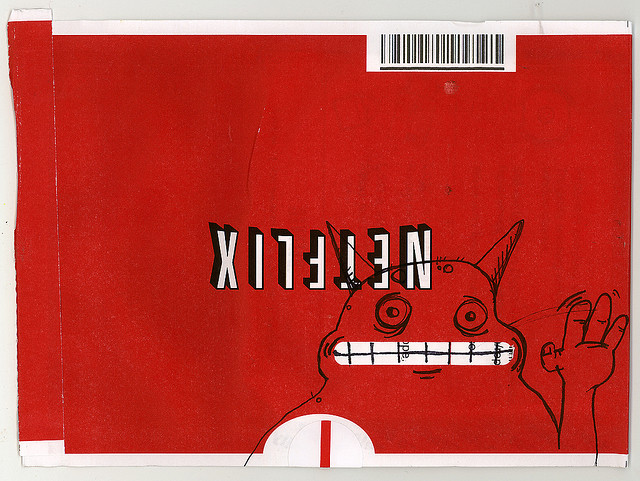
It's been barely two months since Netflix added its long-awaited download feature, and the online streaming company has already been sued over it. The plaintiff is a company few have heard of: Blackbird Technologies, a company with no products or assets other than patents. Blackbird's business is to buy up patent rights and file lawsuits over them, a business known colloquially as "patent trolling."
Blackbird was founded by two former big-firm patent attorneys, Wendy Verlander and Chris Freeman. The organization owns US Patent No. 7,174,362, which it hopes will result in payouts from internet video companies with offline-viewing features. On Wednesday, Blackbird (who tells potential clients about being "able to litigate at reduced costs and achieve results") filed lawsuits against Netflix (PDF), Soundcloud (PDF), Vimeo, Starz, Mubi, and Studio 3 Partners, which owns the Epix TV channel. All of the companies have some type of app that allows for downloading content and watching it offline.
The patent-holding company, which filed the lawsuits in Delaware federal court, has good reason to hope for success. The '362 patent already has a track record of squeezing settlement cash out of big companies. The patent was originally issued in 2000 to Sungil Lee, a San Jose entrepreneur and business instructor. In 2011, Lee sold his patent to Innovative Automation LLC, a patent troll that filed dozens of lawsuits in East Texas and California. Innovative Automation said that the '362 patent covered various "methods and systems of digital data duplication" and used it to sue services like "Target Ticket" and "DirecTV Everywhere." Court records suggest most of those cases settled within months.CD-R you serious?
The '362 patent was designed with optical disc content in mind. Filed in 2000, Lee envisioned a system in which a computer server "downloads necessary data onto the CD-R writing machine," then sends the CD-R into a bin for shipment. However, the patent claims that Lee's attorney wrote, and the US Patent Office ultimately granted, use the vague terminology of describing various "modules" that together comprise a "computer-implemented method of data duplication."
Lee had a pretty straightforward (but arguably very obvious) idea: let a customer order stuff on a website, custom-make a CD full of data, then ship it—all with no human interaction. But here's how he described the system in his key patent claim:
Context is important when looking at Lee's patent. It's extremely unlikely an inventor writing up the idea of a web-based system for creating and shipping CD-Rs, in the year 2000, was not acutely aware of Netflix—whose DVDs-in-the-mail business had begun blowing up. If there was any copying at all, it was Lee copying Netflix's idea. But in the upside-down world of patent trolls, it's Blackbird who gets to claim the mantle of defending innovation, while it accuses Netflix of being the copycat.A computer-implemented method of digital data duplication comprising: taking requests at one or more user interfaces; transmitting said requests through a network to a computer; assigning each of said requests to one of a plurality of output devices; and executing the duplication process, wherein said computer comprises: at least one first module configured to create a task log based on incoming requests; at least one second module configured to store all data necessary for executing said duplication process; at least one third module configured to create a subset of said data stored in said second module, further configured to download said subset to one of said output devices, and further configured to command said output device to transfer said subset onto blank media; and a connection through which said second module communicates with said first module and said third module.
Calls and e-mails to Verlander and Freeman requesting comment on this story were not returned. Lee could not be reached.
reader comments
122